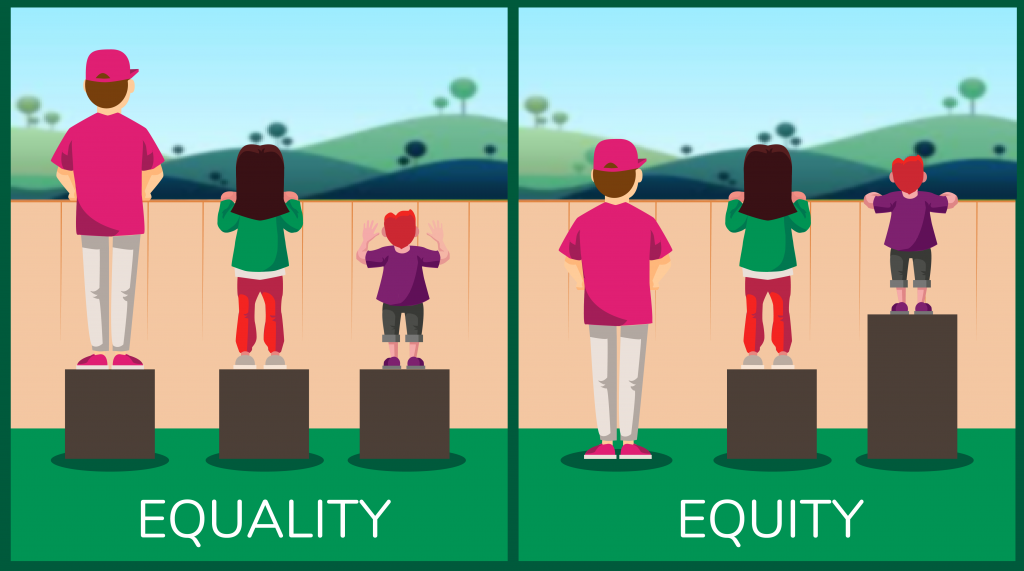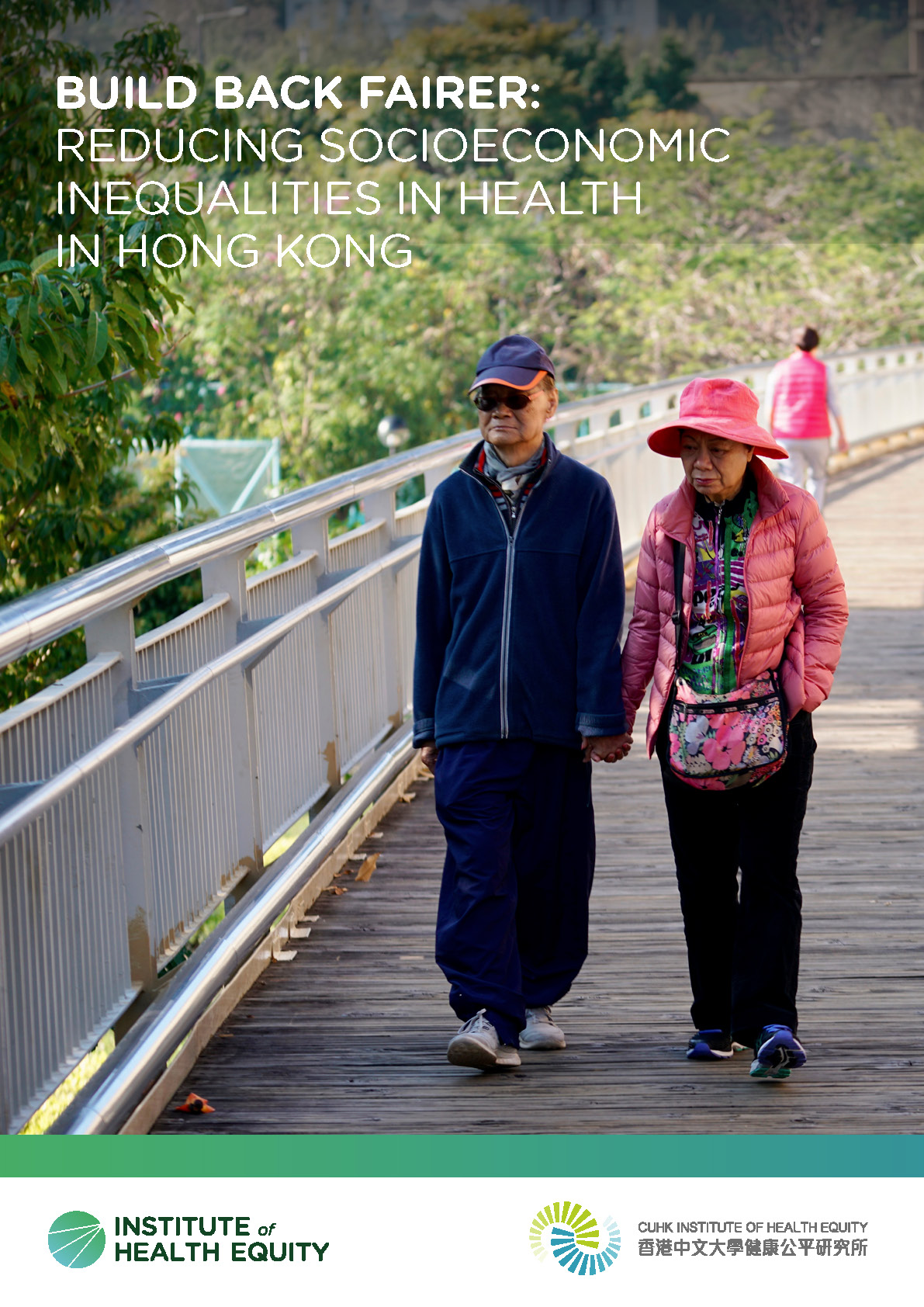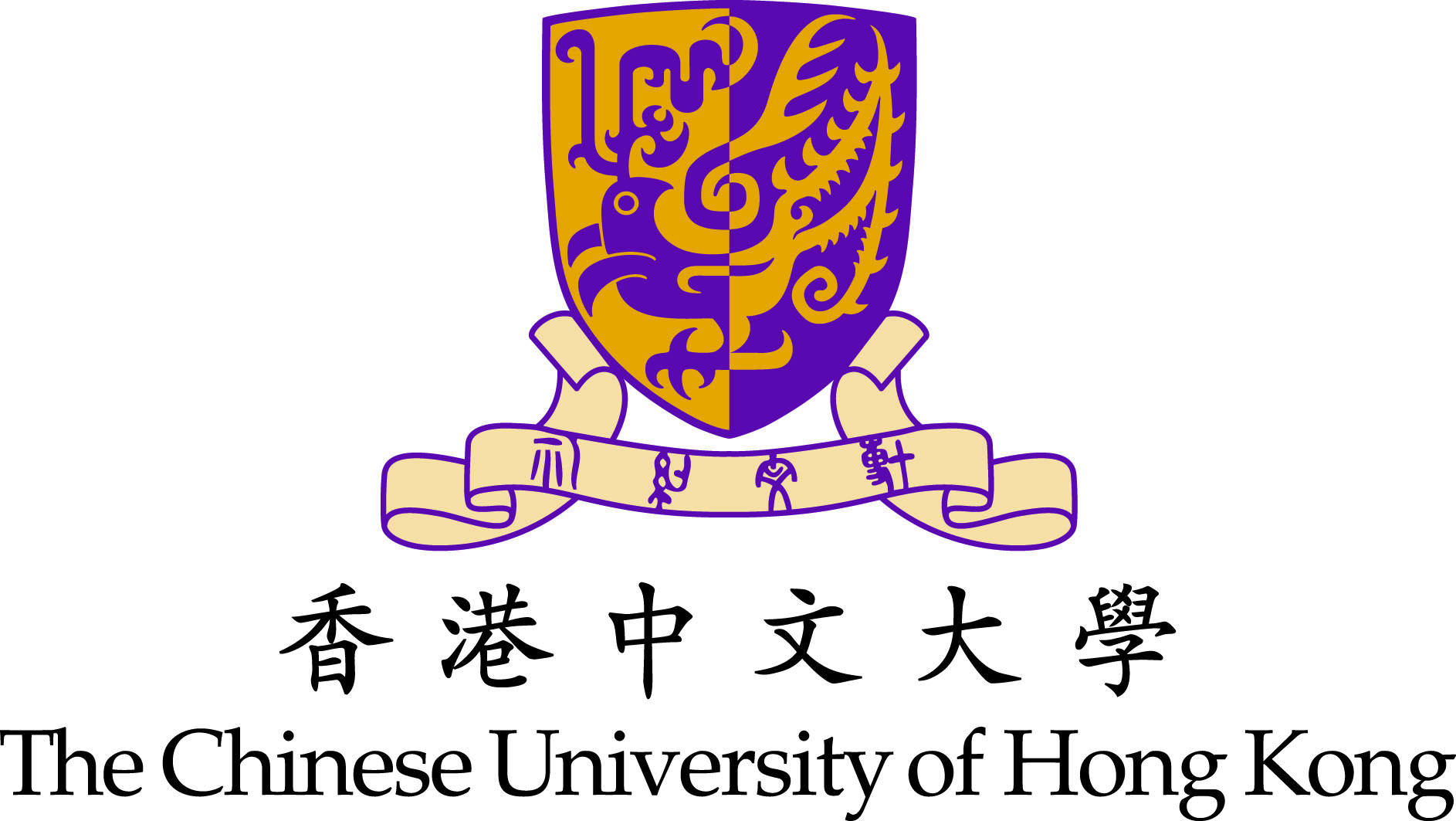Assess Health Equity and Identify Social Determinants of Health

Hong Kong has the longest life expectancy in the world. Yet it has huge wealth inequalities as reflected in the high Gini Coefficient and inequalities in which people live, work and age. These inequalities are expected to drive health inequalities although in Hong Kong and other Asian countries these socio-economic inequalities have not resulted in reduced average life expectancy. Are there ameliorating factors that are cultural/social/physical environmental in nature, or are health inequalities merely not documented, and that increase in life expectancy is occurring at the expense of rising levels of dependency?
Health Equity
Health Equity means fair opportunity to live a long, healthy life. Inequities in health are not inevitable or necessary; they are unjust and are the product of unfair social, economic and political arrangements. A visual diagram of the difference with equality is shown below.

Social Determinants of Health
Social determinants of health (SDH) is a term used to describe the social and environmental conditions in which people are born, grow, live, work, and age, which shape and drive health outcomes. Factors that determine how the SDH conditions are experienced across societies include the distribution of power, money and resources. Unfair distribution creates avoidable health inequalities, known as ‘health inequities’. Therefore, social, economic, and environmental factors, as well as political and cultural factors, constitute the ‘social determinants of health’. For more information, please refer to explainer on health equity.
In collaboration with UCL IHE, CUHK IHE will conduct a review of health equity in Hong Kong which will focus on understanding health inequalities and the underlying driving force. In-depth topics will be identified and examined in subsequent reports. The Institute will also develop effective measurement and monitoring frameworks and support development of appropriate data systems and indicators to monitor inequities in health and social determinants. The indicators will be appropriate for the whole region and for local areas. For more details about the situation of Hong Kong, please see here.
Announcement on the first Health Equity Report in Hong Kong
The institute announced the latest findings on health equity in Hong Kong in November 2021. The first Health Equity Report reveals that Hong Kong has the longest life expectancy worldwide; however, there are also marked health inequalities. The COVID-19 outbreak has exposed and exacerbated the pre-existing social inequalities in Hong Kong. A holistic approach should be adopted to tackle the problem.

Build Back Fairer: Reducing Socioeconomic Inequalities in Health in Hong Kong
Build Back Fairer: Reducing Socioeconomic Inequalities in Health in Hong Kong Executive Report
Current research projects
Increasing the resilience to the health impacts of extreme weather on elderly people under future climate change
Against the backdrop of global warming, extreme hot weather events have been happening more frequently, intensely and with longer duration. Extreme hot weather is closely related to morbidity and mortality of populations, with older people being more vulnerable than other age groups due to the natural decline in physiological functions (more details on hot weather and elderly health (in Chinese only) can be found here). Nevertheless, those who are in socioeconomic disadvantage are also more vulnerable due to various reasons such as their housing environment and limited means and knowledge to keep up their health in the face of extreme hot weather. The CUHK Institute of Health Equity and the CUHK Jockey Club Institute of Ageing are jointly planning a community project to raise community awareness and preparedness in response to the future weather situation.
Multi-dimensional Impacts of the Novel Coronavirus (COVID-19) on Vulnerable Populations in Hong Kong: A Mixed Methods Study
As the novel coronavirus COVID-19 spreads across the world, it is argued that a devastating feedback loop between the disease (and its associated impact of containment measures such as social distancing and lockdown) and social inequality has been set off in many countries. To contribute to the empirical and epidemiological evidence in Hong Kong, the Institute initiates a study to examine i) the relationship between socioeconomic position and physical and mental health of people in Hong Kong; and ii) to investigate the multidimensional general impacts on vulnerable populations (e.g., older adults, working poor) in Hong Kong in the immediate and long term, including the impacts from the governmental preventive and containment measures.
Articles published related to the study:
Health & Social Impact of the COVID-19 Pandemic on Young People across the Socioeconomic Ladder: A Cross-Country Comparative Study (WUN Research Project)
The influence of COVID-19 pandemic is rippling all over the world. In particular, young people are facing detrimental and potentially long-lasting impact of the pandemic during their critical developmental period. Despite the recent development of COVID-19 vaccines, resuming normal school and social life seems to be no end in sight. In view of this, the Institute conducts the project to identify the health and social conditions that are most severely affected by the COVID-19 pandemic among secondary school students. As an international comparison study, the data from our participants will be compared with students across East Asia, America, and Europe. The result of this study is crucial for developing better anti-epidemic strategies and policies, especially for the well-being of students. More information of the study can be found in the website.






